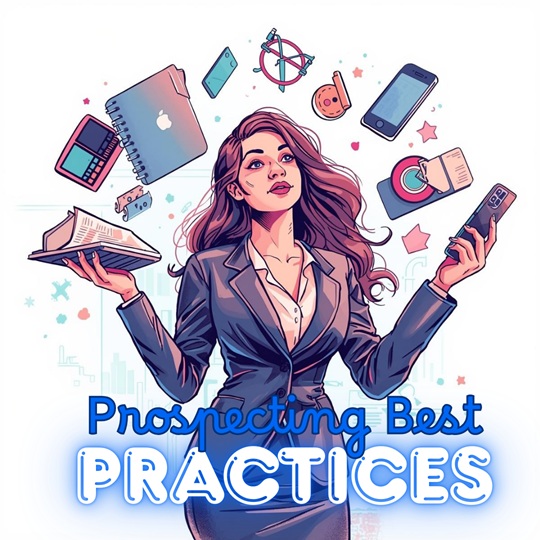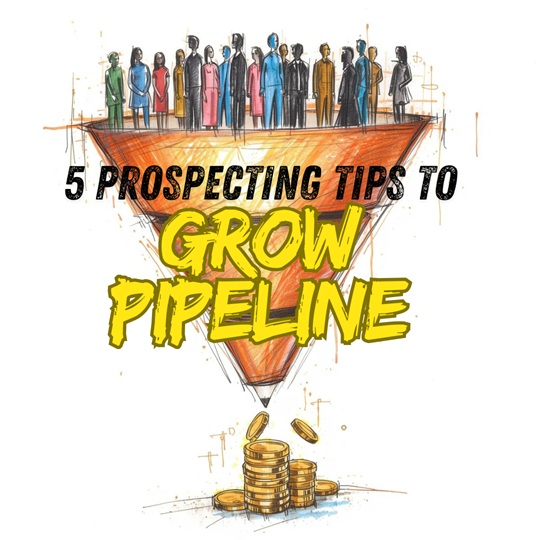Why Build Rapport on a Sales Call?
Sales is all about connecting through the power of human-to-human interactions. People are more likely to buy from someone they like and trust, this can’t happen without proper rapport building.
Too many salespeople get caught up in the process and lose focus on their individual approach to each call.
When you improve the way you conduct your sales conversations, you create more influence, and engagement that you can leverage later in the relationship.
Let’s take a look at how you can avoid terrible rapport building, and how simple it is to create a process to make better connections with the people you work with.
The Do’s of Rapport Building
Building Rapport is the foundation for every sales call. We all have different personalities and different styles. The key is to find a few guiding questions and ideas that you can bring into your conversations to help you build the relationship with the prospect.
Take your time, don’t rush, and keep their needs at the forefront. Implementing these few key ideas, and exterminating your bad rapport building habits will unequivocally improve your sales process.
Do: Listen

Salespeople are great talkers. People become salespeople because of their ability to talk to others, but the greatest salespeople are even better listeners than talkers.
Great salespeople listen to what they are told. Too much listening in sales involves going “Uh huh, uh huh,” while you wait to tell them about your amazing product.
This can be important for two reasons. First, your prospect is talking and giving their concerns and information that will affect their purchasing decision. Secondly, people love to be listened to. It makes them feel important and wanted.
The power of listening can never be underestimated.
Do: Understand Buyers Needs

Everyone wants to focus on themselves and their needs. As sales reps, you need to garner the clients attention to get them to sign a piece of paper and hand over the money. Salespeople’s first instinct should be to focus on this.
The prospect is only considering their needs so it's crucial you understand those. If you’re reaching out to a prospect, then it’s more than likely your product will meet their needs, so it’s important to understand that. The more you understand that the more likely they are to engage with you.
Do: Pay Attention

Creating a connection with your prospect starts from your very first interaction. You want your prospects to trust you when you make a suggestion to them, so you have to set up a trusting relationship from the start.
The first place to look for increased sales success, then, isn’t the end of your sales conversations, it’s their beginning. Too many salespeople think that small talk is something we engage in before we get to the important stuff. Most will try to skip over it because they think it’s a waste of time.
But there’s no such thing as small talk, it’s all a part of a broader, more important conversation.
If you skip over small talk, you skip over the first chance to build a relationship. Talking isn’t always about sharing information, it’s also about developing a social trust.
This level of communication can never be pushed to the wayside. Asking someone how they are doing is so important to the sales process. You’re not asking because you need to know. You’re asking in order to show that you care.
The Don’ts of Rapport Building
Don't: Going too Fast
This happens when we focus on what we need. We try to skip to the end, to move it along, and close the sale.
Prospects don’t spend a lot of time thinking: “Gosh, I wish I was being pressured into a sale.” Take your time, rushing a sale will not help you or the prospect.
Bullying people into a sale may work occasionally, but they don’t enjoy it much, and they don’t renew.
Don't: Trying way too hard
Salespeople can get so excited that they have a great prospect that they end up going overboard and killing the relationship before it has time to develop. Here’s the fastest way to do that: spend the first few minutes bragging about how awesome you, your offering, and your company.
Prospects don’t care how successful you are, the awards you’ve won, or even how good your company is. Salespeople do this because they think that they have to start “adding value” right from the very beginning. It just sounds like bragging and that isn’t the way to gain trust and develop a relationship.
The less you try to impress, the more impressive you are.
Don't: Over Sharing
I’m sure you’ve been talking with someone during a subtle conversation and all of the sudden things go way too deep way too fast. You’re just chatting with someone you met at a party and all of sudden they’re telling you about how their friends never make time for them and treat them poorly.
This does the exact opposite of what you are going for: it pushes people away.
Don’t assume you have to be best friends with your prospects in order to create trust. Avoid oversharing or pushing them to tell you their deepest thoughts and opinions, just create a friendship.
Building Rapport in Sales Calls
There are plenty of guides out there telling you how to sell, but it’s just as important to learn how not to sell in order to build good rapport. The last thing you want to do is make a sales prospect uncomfortable.
One of the biggest areas where salespeople make a lot of mistakes is with a Q&A portion.
You can easily seem unprepared at best, and an amateur, phonebook salesperson at worst if you ask cliche questions the client has answered 100 times before or don't know your product well enough.

Related: How to Handle Sales Objections
Mistakes Your Prospects Wish You'd Stop Making
Effective questioning is crucial to understanding your customer’s needs and building a strong relationship. Avoiding these common pitfalls can help create a more comfortable and productive dialogue with your prospects.
Example of a Good Question: “What are your top three priorities for the upcoming quarter, and how can our solution support these goals?” This type of question demonstrates your interest in their success and positions you as a partner rather than just a vendor.
We want to clarify that asking questions during the sales cycle is a good thing. It helps you better understand the customer’s needs, wants, and limitations. However, steering clear of the questions listed above will give you the advantage of creating a comfortable space for your client– and this is key to nurturing the relationship.
Related: What is Prospecting
So what are the questions you should avoid?
1. Avoid Asking for Easily Accessible Information
Pitfall: “Tell me a little more about your business.”
This question signals a lack of preparation. You should already know the basics about your prospect's business from their website, LinkedIn, or industry publications. Instead, ask targeted questions that show you’ve done your homework and are genuinely interested in their specific challenges.
Example: Before a call with a potential client, you research their latest product launch. Instead of asking general questions, you say, “I saw your new product launch aimed at improving customer experience. Can you share what specific challenges you are facing in scaling this solution?”
2. Skip the Obvious Questions
Pitfall: “Do you want to save money?”
Questions with obvious answers waste valuable time and can annoy your prospect. Instead, every question should aim to uncover deeper insights into the prospect's needs and how your solution can address them.
- “Do you want to make the process easier?”
- “Are you interested in saving money?”
- “Are you looking to generate more business?”
- “Can I be honest with you?”
Example: Instead of asking if they want to save money, ask, “What are the most significant operational costs you’re looking to reduce this year, and how do you prioritize these cost-saving measures?”
3. Rephrase Decision-Maker Questions
Pitfall: “Are you the decision-maker?”
This question can come off as pushy and may alienate the prospect. It’s likely they wouldn’t be on the call if they had no influence over the decision. Instead, build rapport and understand their role more subtly.
Example: Ask, “Can you tell me about the decision-making process for new solutions in your company and who else is involved?” This shows respect for their role and gathers the necessary information without being blunt.
4. Steer Clear of Vendor Comparison Queries
Pitfall: “Are you looking at other vendors?”
Asking this question directly can create discomfort and pressure. It’s normal for businesses to evaluate multiple options. Trust in your product's value and focus on demonstrating its benefits without prying.
Example: Instead of focusing on competitors, emphasize your unique selling points: “Our solution offers seamless integration with your existing systems, reducing downtime significantly. How important is this feature for you?”
5. Handle Budget Questions Tactfully
Pitfall: “What’s your budget?”
Budget questions can be tricky and might make prospects uncomfortable if asked too early. Allow the prospect to guide the conversation towards pricing.
Example: Offer valuable information first and then say, “I can provide a detailed pricing overview whenever you’re ready. What specific outcomes are you looking to achieve with your investment?” This opens up the budget discussion naturally.
Do you agree with our list of questions? What else would you add? Tell us on one of our social media platforms, we want to hear from you!
Final Thought
The key to successful sales lies not just in knowing what to ask but also in understanding what to avoid. Steering clear of these five common pitfalls can create a more engaging and respectful conversation with your prospects, ultimately leading to better relationships and higher sales.
Join the Conversation: Do you agree with our list of questions to avoid? What other questions have you found to be ineffective or counterproductive? Share your thoughts on our social media platforms – we’d love to hear from you!
Related: Best Prospecting Software Tools

















